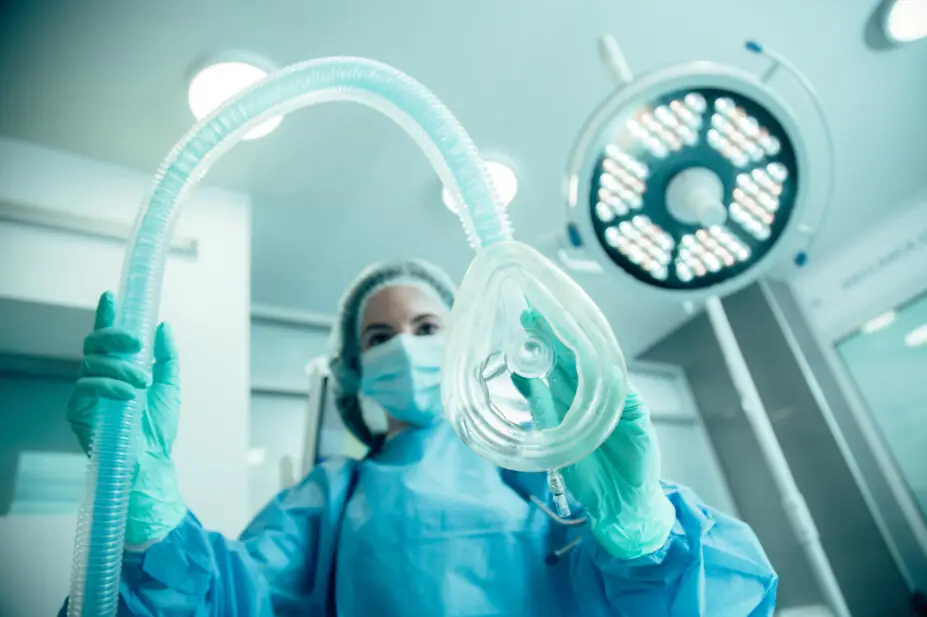
Shutterstock.com
The Medicines and Healthcare products Regulatory Agency (MHRA) has warned healthcare professionals to be aware of the potential risk of pulmonary aspiration in patients using glucagon-like peptide-1 (GLP-1) or dual glucose-dependent insulinotropic polypeptide (GIP)/GLP-1 receptor agonists (GLP-1 RAs), who undergo surgery or procedures with general anaesthesia or deep sedation.
In a drug safety update, published on 28 January 2025, the MHRA cited findings of a recent European Medicines Agency (EMA) review of the available evidence for all GLP-1 and dual GIP/GLP-1 RAs, which concluded that data supports an association between the medicines and the potential risk of pulmonary aspiration during anaesthesia or deep sedation, owing to the delayed gastric emptying linked to these medicines.
GLP-1 RAs, including semaglutide, liraglutide and dual GIP/GLP-1 RAs, such as tirzepatide, are used in the treatment of diabetes mellitus and weight loss.
The review evaluated whether a specific time to pause the use of a GLP-1 or dual GIP/GLP-1 RAs prior to anaesthesia could be recommended. It also recommended new fasting guidelines or an appropriate medical procedure to confirm an empty stomach.
However, in its drug safety update, the MHRA said the evidence to support further recommendations was “limited” and “it was concluded that anaesthetists should retain the flexibility to provide individualised assessment”.
As a result of the findings, the product information of all GLP-1 and dual GIP/GLP-1 RAs has been updated to include the potential risk of pulmonary aspiration under general anaesthesia or deep sedation, the MHRA said.
The MHRA advised healthcare professionals to consider that patients taking GLP-1 or dual GIP/GLP-1 RAs who have underlying diabetic gastroparesis, as well as other comorbidities, such as obesity or gastroesophageal reflux disease and symptoms of delayed gastric emptying (e.g. nausea, vomiting and abdominal pain), may be at higher risk of aspiration.
It also warned that patients should be asked about whether they are taking GLP-1 or dual GIP/GLP-1 RAs, as there is a “possibility that patients may have purchased GLP-1 or dual GIP/GLP-1 RAs for aesthetic weight loss and may not readily disclose this information unless directly asked”.
“Be aware that private prescriptions may not always be included in the patient’s medical notes or drug history,” it added.
The MHRA stressed that healthcare professionals should identify the increased risk of aspiration “as early as possible before surgery and specifically at pre-assessment clinic before surgery”, and “remind patients to inform their healthcare teams and anaesthetists if they are on GLP-1 or dual GIP/GLP-1 RAs”.
As of 12 December 2024, the MHRA said it had received “a very small number” of Yellow Card reports of aspiration during a surgical procedure associated with GLP-1 or dual GIP/GLP-1 RAs, including one case that resulted in aspiration pneumonia.
Commenting on the guidance, Toni Brunning, vice president of the Royal College of Anaesthetists, said: “We encourage patients to let their healthcare team know as early as possible in their peri-operative journey if they’re taking a GLP-1 or dual GIP/GLP-1 RA, as these medications won’t necessarily show on hospital or GP records if they’ve been purchased privately.
“As anaesthetists, having this information enables us to provide an individualised assessment of the risk of pulmonary aspiration. The MHRA update also complements the recent consensus statement from anaesthetic and specialist organisations that provides guidance for how the increased risk can be managed safely in the perioperative period.”
In early January 2025, the Association of Anaesthetists published a multidisciplinary consensus statement on elective peri-operative management of adults taking GLP-1 and dual GIP/GLP-1 RAs, which advised that patients take GLP-1 or dual GIP/GLP-1 RAs as normal, as well as receive a full risk assessment and peri-operative techniques to mitigate risk of pulmonary aspiration during the peri-operative period.
Also in January 2025, the EMA announced that its Pharmacovigilance Risk Assessment Committee had started a review of medicines containing semaglutide, following concerns over links to an increased risk of patients developing a rare eye condition.


